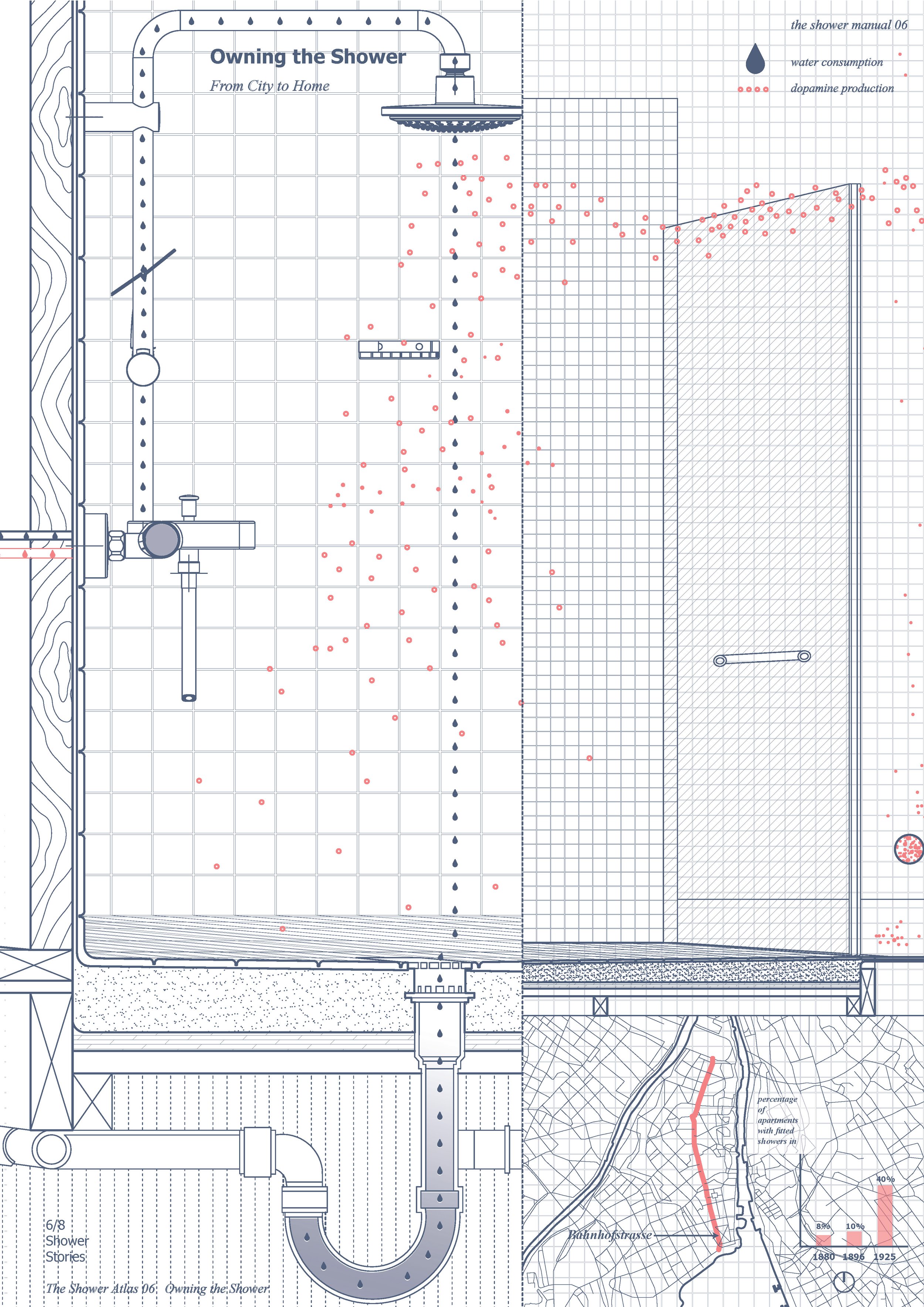Owning the shower
Up until 1925, only 40% of the apartments in Zurich were reported to have bathrooms or any type of connection to the sewage system despite its availability and yet exclusivity within one of the richest streets in Zurich (Chen et al. 45). On the other hand, the city strived to provide its people with accessible and affordable means to bathe. It strived to keep its waters clean at a time when the population was increasing and the 40% of people were causing sick waters (Chen et al. 46). Therefore, at the time, owning a bathroom and a shower in the city was quite polluting. Running away from disease outbreak and to distinguish themselves from bathing with the masses, the rich community of Zurich had a shower fitted within their apartment. They were only 8% during 1880 when the modern sewage canal was first introduced (Chen et al. 42). The solution of a fitted self-owned shower not only increased pollution levels in the water all citizens of Zurich used for drinking but also increased disease outbreak causing a negative feedback loop on the bathroom owners themselves. Moreover, shower owners were only the beginning of a secluded and private mode of bathing and living that draws a boundary around the body and poses many questions concerning the body and its needs (Fö et al. 2). Bathing in public and in open waters was frowned upon in society as it was starting to be considered impolite and vulgar while those who indulged were punished for that (Chen et al. 52). In the classical world, cosmic order was enacted through bodies (Fö et al. 1). Bodies were agencies to the social world around them while bodily needs were fulfilled through the engagement of daily activities of people around them. In the 1800s regular bathing habits were reintegrated to fight diseases and maintain health. The military began building baths for swimming classes that were accessible by the public. The pleasures of bathing returned steering away from the alienating norms of the body. Zurich is a city where the body is celebrated as a means for social bathing activities. The perseverance of the bathing culture despite the privatization of the shower, has prevented the body from becoming a taboo within society. The boundary between what is public and what is private is pushed in a way that allows citizens to freely express their social and hygienic basic needs.
